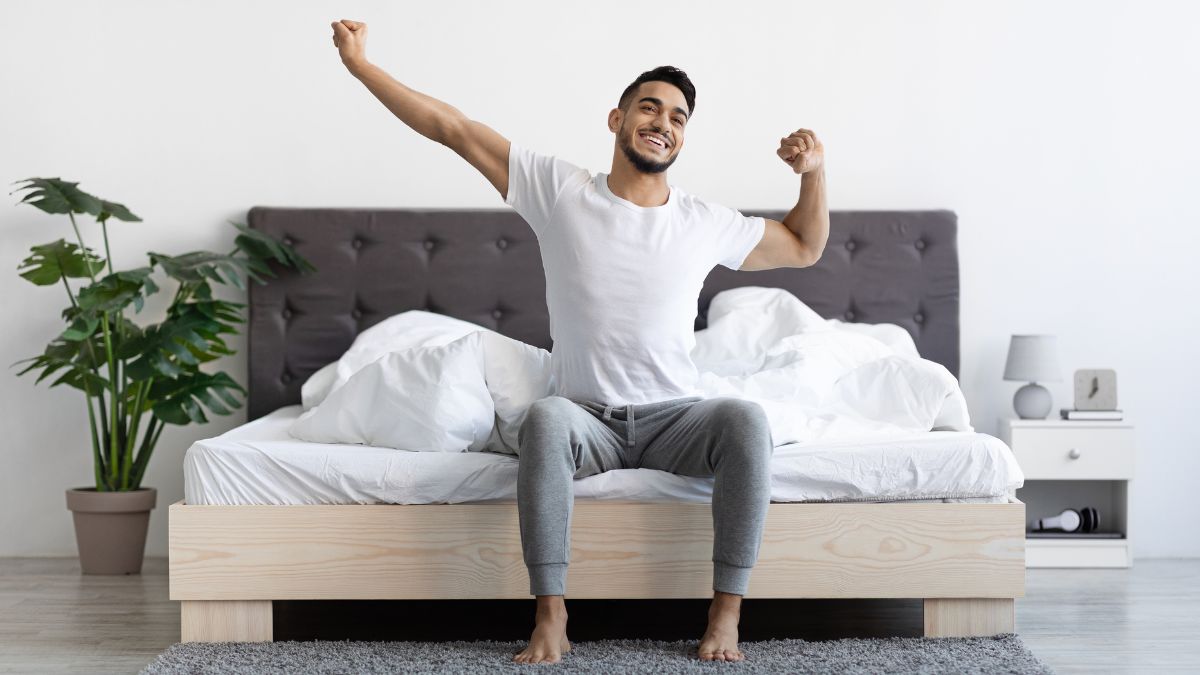How To Improve Your Sleep Hygiene for a Better Night’s Sleep
Are you struggling to get solid sleep each night and feeling frustrated from tossing and turning all night, only to wake up feeling groggy and unrested?
Sleep is so essential to good health that it can feel daunting when you can’t seem to sleep well no matter how hard you try. The good news is that by improving your sleep hygiene, you can set yourself up to experience peaceful and restful nights.
What is Sleep Hygiene?
If you’re not familiar with the term ‘sleep hygiene,’ it refers to habits, behaviors, and environmental factors that contribute to your sleep quality and patterns.
Why This Matters
Good sleep hygiene ensures you get a good, quality night’s sleep, whereas poor sleep hygiene will accomplish the exact opposite and, over time, can have negative repercussions on your health.
Implementing some of these actionable tips will improve your sleep hygiene and have you snoozing like a baby in no time!
Establish a Bedtime Routine
Just like a good morning routine can set you up to have a great day, a good bedtime routine can work wonders for your sleep quality. Working late and watching Netflix until the wee hours of the night is a surefire way to sabotage your sleep.
Instead, try dimming the lights, sipping on some calming chamomile tea, reading a book, or writing in a journal for 30 minutes before bed.
Simple changes like these can make a difference in helping you wind down and drift off to dreamland more quickly.
Create a Sleep-Friendly Environment
Your bedroom should be your ‘sleep sanctuary.’ Creating a dark, cool, and quiet environment will help keep you comfortable while you sleep and minimize waking up throughout the night.
Consider investing in blackout curtains, a white noise machine, and comfy, breathable sheets. A peaceful environment is key to getting quality sleep, so they’ll be worth every penny.
Limit Screen Time Before Bed
I know, I know. It’s hard to resist scrolling on social media or watching one more episode of whatever show you’re currently binging right before bed. However, the blue light that’s emitted from your screens can disrupt your natural sleep-wake cycle.
To combat this, try to unplug at least an hour before bedtime to give your eyes a rest. Don’t worry, your Instagram feed will be there waiting for you in the morning.
Curb Eating and Drinking
Eating and drinking caffeine too late in the day can wreak havoc on your sleep. Be mindful of what you consume in the hours leading up to bedtime. Opt for a light, nutritious dinner and avoid heavy, greasy meals that are slow to digest.
Limit your caffeine intake in the afternoon and evening – even if you feel as though caffeine “doesn’t affect you” – and steer clear of alcohol before bed.
Get Moving
Exercise is a fantastic way to improve sleep quality, but be careful not to work out too close to bedtime.
Physical activity naturally energizes you, so moving your body in the morning or early afternoon will help you avoid feeling sluggish during the day and help you fall asleep more easily. Plus, it’s a fantastic mood booster!
Prioritize Relaxation Techniques
Try incorporating relaxation techniques into your bedtime routine to calm your mind and prepare your body for sleep. Some good options include deep breathing exercises, guided meditation, and taking an Epsom salt bath. These practices can release tension and anxiety, making it easier to fall asleep and stay asleep.
Stick to a Consistent Sleep Schedule
Having a regular sleep schedule is crucial for good sleep hygiene. Going to bed and waking up at the same time every day (even on weekends) helps to regulate your body’s internal clock. It can be tempting to sleep in on weekends, but sticking to a consistent schedule will pay off in the long run.
If you love to sleep more on weekends, taking a short nap is a good alternative to sleeping in. Aim for a 20-30-minute power nap to recharge your batteries; make sure not to nap too close to bedtime, as it can make it harder to fall asleep at night. Over time, your body will acclimate to your schedule and should eventually begin waking up without an alarm.
Seek Professional Help When Needed
Sometimes, despite our best efforts, sleep issues persist. If you’ve implemented all the above tips and still struggle with poor sleep, it may be time to consult your doctor. They can determine if an underlying issue, such as sleep apnea, insomnia, or another sleep disorder, needs to be addressed.
Improving your sleep hygiene isn’t an overnight fix, but good sleep is crucial to leading a healthy lifestyle, and investing in it will significantly impact your daily life.







